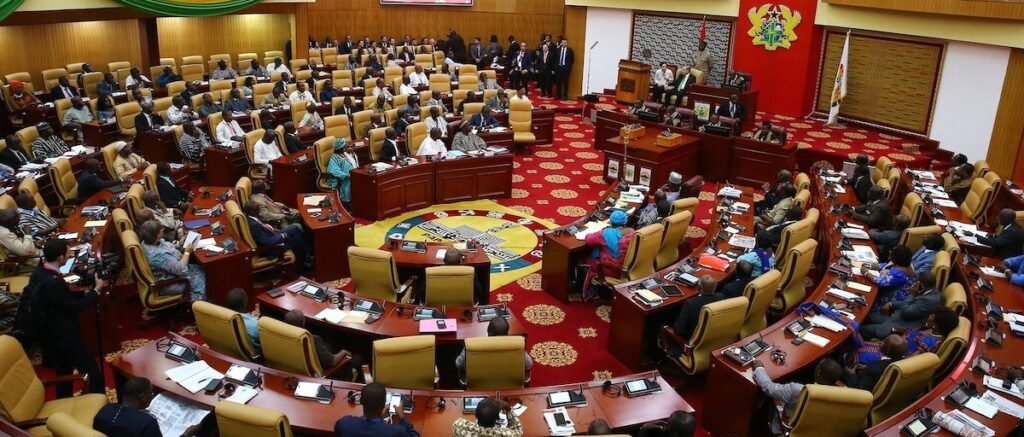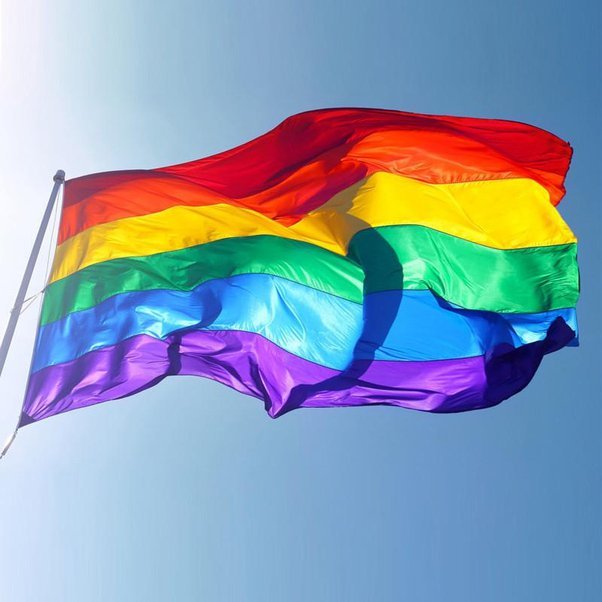The Parliament of Ghana has passed the bill on human sexual rights and family values, commonly referred to as the anti-LGBTQ bill.
The bill proscribes LGBT activities and criminalizes its promotion, advocacy and funding. Persons caught in the act would be subjected to 6 months to 3-year jail term with promoters and sponsors of the act bearing a 3-to-5-year jail term.
The lead sponsor of the Bill Hon. Samuel Nartey George, MP for Ningo Prampram proposed that clauses 10 and 11 of the anti-LGBT which deals with editorial policies of media firms be subjected to article 12 of the 1992 constitution which provides for the freedom of the media.
Ahead of the passage, sponsors of the Bill filed a motion for a further consideration stage of the bill and these amendments were approved by the House as part of the bill.
The Majority Leader of the Parliament of Ghana, Hon. Alexander Afenyo-Markin on his part also filed a motion for clause 12 of the bill which deals with the funding of LGBT activities to be subjected to the constitution but that was negated by the House.
The bill, called the Promotion of Proper Human Sexual Rights and Ghanaian Family Values Bill, was introduced by Sam Nartey George, the MP for Ningo-Prampram.

It is reported that the bill was a Private Members Bill led by Hon. Sam Nartey George.
Local media also reports that individuals caught engaging in the activity could face a jail sentence ranging from six months to three years, while those who support or promote the activity may be sentenced to three to five years in prison.
This is coming after years of the bill being in parliament and going through various stages, facing backlash and efforts by opponents to block it or make changes.
In Ghana, homosexuality is currently prohibited by law and can result in a prison sentence of up to three years. And according to the new legislation, the maximum sentence will be extended to five years.
This proposal will also criminalize the distribution of materials that are considered supportive of LGBTQ rights.
According to Citi Newsroom, Parliament approved the bill one day after Professor Audrey Gadzekpo, the Board Chair of the Ghana Centre for Democratic Development, urged President Nana Akufo-Addo to reject it.
In a contrarian view, Takyiwaa Manuh, a senior fellow at the Ghana Centre for Democratic Development, mentioned that Akufo-Addo has not approved any previous privately sponsored bills for legal reasons related to the country’s constitution.
According to Takyiwaa Manuh, the speaker of the parliament did not conduct the necessary analysis of the bill. She believes that if the bill becomes law, it will significantly impact the judiciary, police, and other areas of society. In her words, “I am sad, disappointed and surprised that our commitment and democratic principles in this country appear to be so shallow.”
“This bill represents a real danger to our country, and we are looking to the president to uphold the values of our country and constitution,” she said.
The bill will however need the President’s approval to take effect. And It remains uncertain whether President Akufo-Addo will approve the bill.
In 2021, the United Nations expressed concerns about the potential impacts of the proposed law, Human Sexual Rights and Family Values, warning that it could lead to state-sponsored discrimination and violence against sexual minorities.
In May 2023, Uganda signed one of the world’s toughest anti-LGBT laws, including the death penalty for “aggravated homosexuality.” Activists said it unleashed a wave of abuse and the World Bank suspended new funding to the country.
The passage of the Bill by Parliament comes a day after the Board Chair of the Ghana Center for Democratic Development (CDD-Ghana), Professor Audrey Gadzekpo, called on President Akufo-Addo to reject the Bill.
She argues that the bill undermines fundamental human rights protected by the Constitution, including the rights to dignity, freedom of speech and association, procession participation, academic freedom, equality, and non-discrimination.
Speaking at a press conference focused on human rights and a rights-based approach to supporting sexual minorities in Ghana, Prof. Gadzekpo emphasized that upholding rights and freedoms is crucial to constitutional democracy.
She warned that altering these rights could jeopardize Ghana’s democratic principles, highlighting the significance of the issue for all citizens.
The Bill would now require presidential assent to come into force. President Nana Akufo-Addo has not confirmed if he would sign the bill into law. The United Nations said in 2021 that the proposed law, Human Sexual Rights and Family Values, would create “a system of state-sponsored discrimination and violence” against sexual minorities.




